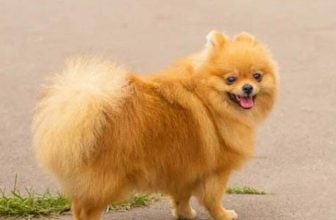
There are many reasons for dog anorexia. Common reasons include: improper feeding, monotonous diet, indigestion, lack of exercise, depression, heat, illness, etc. Owners should take targeted solutions based on the specific reasons for dog anorexia. . In order to avoid anorexia in dogs, owners must pay attention to feeding their dogs reasonably, choose high-quality dog food as the dog’s staple food, and enrich the dog’s diet to avoid the dog’s diet being too single, causing the dog to Dog loses interest in food. Moreover, owners should also pay attention to feeding the dog regularly and quantitatively so that the dog can develop good eating habits.
When dogs are anorexic, they are not interested in any food, their eating speed slows down, and their food intake decreases. When facing the food they usually like to eat, they only eat a little or smell it and then stop eating it. There are many causes of anorexia in dogs, and targeted treatment is required based on the specific cause of anorexia in dogs. The editor below will mainly introduce the common causes of anorexia in dogs.
1. Common causes of anorexia in dogs
1. Frequent snacks: The anorexia of dogs is closely related to the feeding methods of their owners. Many owners dote on their dogs and feed them meat or snacks as soon as they see that their dogs eat less, which causes the dogs to develop a Wrong perception: You can get better food by not eating dog food, which will lead to picky eaters and anorexia in dogs over time.
2. Irregular feeding: The owner feeds the dog irregularly, and the feeding frequency and amount are not fixed. The owner does not care whether the dog eats or not. In the long run, it is likely to cause the dog to lose its desire for food, leading to anorexia. .
3. In estrus: The dog’s appetite will decrease during estrus, which is normal. Moreover, during estrus, the dog’s mood will become irritable or depressed. During this period, the owner must find ways to divert the dog’s attention. , play and interact with the dog more, the dog will slowly regain its appetite after the estrus is over.
4. Indigestion: If the dog eats too much or has a loss of appetite due to improper eating habits, it may also suffer from anorexia in the short term. In this case, the owner can appropriately feed it some digestive drugs. , such as probiotics for pets, promote their gastrointestinal motility and speed up digestion.

5. Teething discomfort: During the teething period, dogs will lose their appetite due to tooth discomfort or pain, but they like to bite hard objects. This is a common symptom during the teething period. During this period, owners can provide the dog with Some teething sticks, you can also feed your dog some chicken jerky that helps with teeth grinding, etc., which can not only meet the dog’s teeth grinding needs, but also increase the dog’s appetite and supplement nutrition.
6. Weather changes: Dogs may also lose their appetite when the weather changes suddenly or the climate is hot and humid. At this time, dogs often only taste the food they usually like to eat. The owner does not need to worry too much. Dogs will adapt to the weather. Appetite will naturally return after the change.
7. Low mood: Dogs’ mood will also affect their appetite. When they are in a low mood or depressed, they will not like to eat. In this case, the owner needs to find out the reason why the dog is in a bad mood. , help it restore its positive and good mood in time.
8. Insufficient exercise: The growth rate of dogs slows down after they become adults, and they no longer need a lot of nutrients to meet the needs of rapid growth and development. Therefore, the dog’s food intake may be reduced. When the owner sees the dog’s food intake reduced, he may suspect the dog. Is the dog anorexic? In fact, this is the dog’s normal food intake. In addition, the dog’s need for exercise increases as adults. If there is insufficient exercise for a long time, the dog’s need for food may decrease, because then they can maintain life energy by supplementing a small amount of nutrition. Therefore, owners should pay attention to the growth of the dog according to the growth of the dog. The dog’s diet and feeding methods should be adjusted in time as the stage changes.
9. Caused by diseases: Dogs will suffer from a loss of appetite when they suffer from certain diseases or pain, such as gastrointestinal diseases, oral diseases, liver diseases, kidney diseases, respiratory and lung diseases, blood diseases, nervous system diseases, etc. If it affects the dog’s appetite, the owner should pay attention to the physical and mental state of the dog. If the dog shows abnormal symptoms, take it to the pet hospital for diagnosis and treatment in time.

2. What to do if your dog is anorexic
1. Increase the amount of exercise for dogs: All dogs need a certain amount of exercise. Proper exercise is good for their bodies. It can strengthen their physique, promote metabolism, and improve their resistance. Moreover, exercise can also promote gastrointestinal motility in dogs, accelerate digestion and increase appetite, so it is best for owners to take their dogs out for a walk regularly every day to ensure that their dogs exercise adequately.
2. Stop feeding for a period of time: If the dog is picky about food, it is best for the owner not to continue to spoil the dog. You can stop feeding it for a period of time. During this period, just pay attention to providing it with enough drinking water. If the dog is hungry, Will naturally be willing to eat and correct the dog’s picky eating problem.
3. Feed snacks and canned food reasonably: For dogs, canned food and snacks are more palatable. If the owner often feeds canned food or snacks to the dog, it will easily cause the dog to eat less dog food, and even develop a bad habit. Picky eating habits, no longer eat dog food, so in order to avoid this happening, the owner must properly feed canned food and snacks to the dog, use dog food as the dog’s staple food, and then feed it other foods after feeding the staple food.
4. Feed the dog regularly and quantitatively: In order to prevent the dog from losing interest in eating, it is best for the owner to feed the dog regularly and quantitatively so that the dog can develop good eating habits. Moreover, the owner should pay attention to enriching the dog’s diet and avoiding the dog’s diet. Too single.
In addition, if the dog’s anorexia is secondary to a disease, the owner should take it to the pet hospital for examination and treatment in time.







